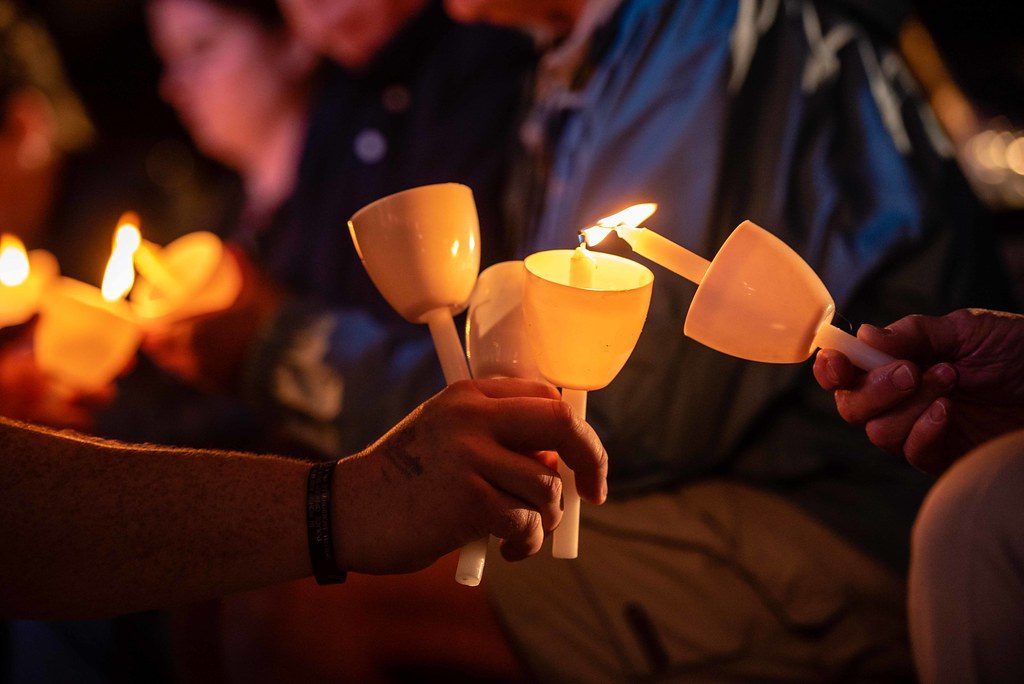Rejecting Apathy and Cynicism in Light of Recent Tragedies

The heartbreaking events in El Paso, TX and Dayton, OH left at least 31 people dead and many others injured. These horrific events left a hole in the hearts of so many people across the country and the world. What can we do and how can we make any sense of these evil acts of violence? Further, how should we address these concerns with our children?
Many of us are concerned that mass shootings are becoming normalized in American culture. The exhaustion, heartbreak, and hopelessness that many of us are experiencing in the aftermath is widespread. We must do something though, even if it seems easier not to. Even simple things, like believing in the good of people, sharing kindness, rejecting cynicism, racism and hatred when we see it are good places to start. President Obama’s response to the mass shootings has been helpful to me as I grapple with this heartbreak.
The next important question becomes, what can we do to create some kind of positive change? How can we ensure our children will not have to enter their schools and community spaces with thoughts of violence in the back of their minds? How do we ensure that this kind of violence and carnage never feels normal? As an educator, a political scientist and a parent, there are some things I have found solace in.
- Remind yourself and your loved ones that people are inherently good: You most likely won’t have to look too hard for examples of kindness close to home. If you need some examples or inspiration, here is a website to get you started.
“Remember there’s no such thing as a small act of kindness.
Every act creates a ripple with no logical end.” – Scott Adams
- Reassure your kids that they are safe: Explain to your children that their community is safe and allow them to discuss their concerns with you. Take time with these conversations and let their age and maturity level dictate the nature of the conversation. Let them know it is normal to feel upset and worried after events like these and that you are there for them and love them. Discuss who the safe people in their schools or communities are (for example police officers and fire fighters). This will allow them to feel supported whether they are at home or somewhere else. You will have to acknowledge that sometimes bad things happen or people do bad things, but highlight the likelihood of these things happening to them are very low.
- Limit Media Exposure for your children and yourself: Everyone needs to be mindful of the ways they use and are exposed to media, especially in the constant news cycle of the day. Set boundaries for yourself and your children. Notice how you and they react to being exposed to media (even age-appropriate content).
Don’t use this as an opportunity to totally tune out from current events; rather, set clear limits on screen use of all kinds. Setting timers on your phone with apps or tracking time spent watching TV is a good place to start. This seems especially relevant today, as a 2018 report found that:
I don’t know about you, but there are many other things I would like to be doing with 11 hours of my day, each day. These numbers are quite astounding; even as we become more dependent and connected to technology, we need to be mindful of the impact this has on our physical and mental well-being. This is also an excellent time to create or re-visit your family media plan. To get you started on this, check out this website.
- We can all make a positive impact on our communities: Eleanor Roosevelt wrote, “Where, after all, do universal human rights begin? In small places close to home.” What speaks to you and your family? Don’t wait; you can make a positive impact today.
If you, your children, or another family member is struggling with recent events, please call JFCS. Our highly skilled, licensed therapists, social workers, and case managers work with care and compassion to address these and other challenges that people face throughout their lives. You can reach Counseling and Mental Health Services at JFCS at 952-546-0616 or www.jfcsmpls.org/counseling.
Our Family Life Education Department also can address these concerns for groups with trainings such as: Dealing with Media Fatigue and Managing Screen Time for Families. We can also work with you to address the specific needs of you and your community. Click here for more information on Family Life Education programming.
Leah Persky, PhD
Family Life Educator
lpersky@jfcsmpls.org
952-546-0616
